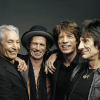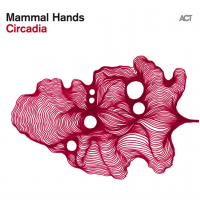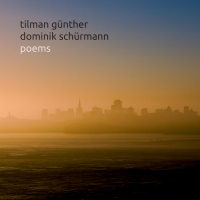Home » Jazz Articles » Album Review » Bobby Shew / Bill Mays: Telepathy
Bobby Shew / Bill Mays: Telepathy
The artists whose resumes are extensive—Shew with the big bands of Buddy Rich, Woody Herman, et al, at the Hollywood studios, and the small groups of Horace Silver, and Mays with everyone from Art Pepper to Frank Zappa, in all ensemble sizes, offer predominantly well-known GASsers for the completely extemporaneously performed session. Two free-form tunes—the title track and "Telepathy II"—are highlights and add to the dynamism of this collaboration. And most tracks were first takes.
"It Might As Well Be Spring" awakens with Mays setting pastel colors and with Shew's rubato poetry via a lush, expressive flugelhorn. "Poor Butterfly" has Shew's Harmon dancing over Mays' comps before Mays delivers his first extended solo—a terrific one. Throughout that track and the entire session, melody and texture dominate. The musical palette here is pastel and soft. However, the interplay between these two is electric, involving and enticing. Shew's flugel is especially tone-rich and his ability to draw colors from dynamics and inflection touches is superb. As it was with with the album's dedicated artist—Miles Davis—simplicity can say the most, and Shew's sketches, whether brief or extended, always swing and speak volumes. Mays, ever the explorer whenever he performs, is the perfect partner for this type of effort. He is inventive, supportive, and has a wizard's keyboard approach in developing his own ideas and responding to what musically spirals with his partner.
"Telepathy" is an introspective, meditative free-form experiment. The track is seductive, drawing one into the melodic, harmonic and rhythmic dimensions. Luis Bonfa's "Gentle Rain" is rendered straight bossa. "You've Changed" is a showcase for Shew's azure lyricism, with Mays setting a platform before his own elegant solo. "Indian Summer," taken up tempo, swings heavy. Both players stretch out with ace solos. "Telepathy II" closes the session with a second venture into the free where trills lead to motifs, responses, and shimmering delights.
Such a brilliant effort as Telepathy can only be achieved by artists of sensitivity and vast creative depth. It is joyous experience.
Track Listing
It Might As Well Be Spring, Poor Butterfly, Yesterdays, Telepathy, The Gentle Rain, You've Changed, Indian Summer, Telepathy II.
Personnel
Bobby Shew
trumpetBill Mays
pianoAlbum information
Title: Telepathy | Year Released: 2020 | Record Label: Fresh Sound Records
Tags
PREVIOUS / NEXT
Support All About Jazz
 All About Jazz has been a pillar of jazz since 1995, championing it as an art form and, more importantly, supporting the musicians who make it. Our enduring commitment has made "AAJ" one of the most culturally important websites of its kind, read by hundreds of thousands of fans, musicians and industry figures every month.
All About Jazz has been a pillar of jazz since 1995, championing it as an art form and, more importantly, supporting the musicians who make it. Our enduring commitment has made "AAJ" one of the most culturally important websites of its kind, read by hundreds of thousands of fans, musicians and industry figures every month.






















